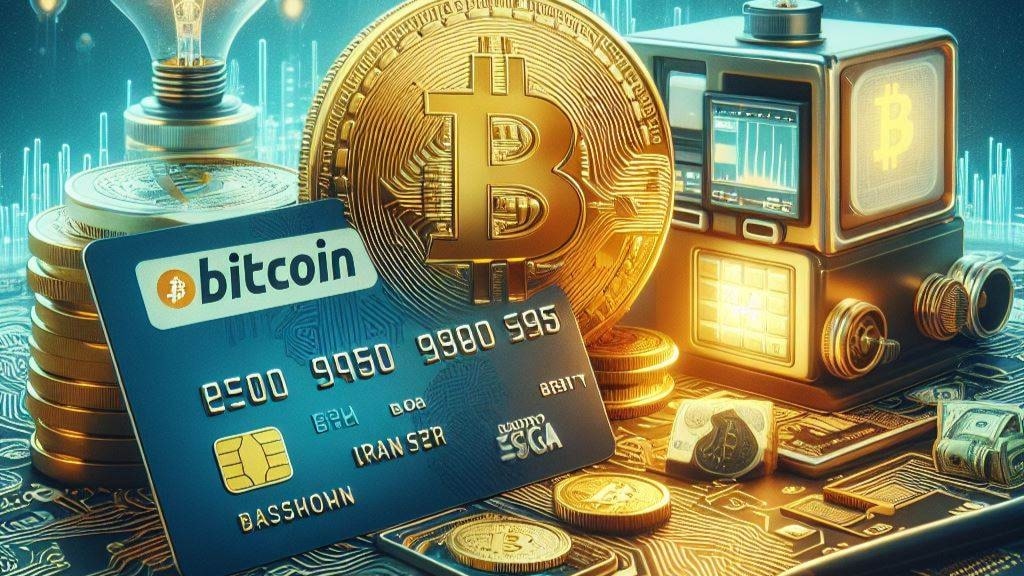Understanding the Appeal of Buying Bitcoin with a Credit Card: Buying Bitcoin with a credit card offers several advantages that make it an attractive option for investors:
- Speed and Convenience: Purchasing Bitcoin with a credit card is a swift and hassle-free process, allowing investors to capitalize on market opportunities without delay. Unlike traditional bank transfers, which can take days to process, credit card transactions are almost instantaneous, enabling investors to seize favorable price movements promptly.
- Security and Regulation: Major cryptocurrency exchanges that accept credit cards often adhere to stringent regulatory standards, implementing robust Know Your Customer (KYC) and Anti-Money Laundering (AML) measures to safeguard investor interests. This regulatory oversight instills confidence among investors, assuring them of the safety and legitimacy of their transactions.
- Accessibility for New Investors: Buying Bitcoin with a credit card is particularly appealing to novice investors who are already familiar with using credit cards for online transactions. This familiarity reduces the learning curve associated with entering the crypto market, making it more accessible to a broader audience of potential investors.
- Protection from Fraudulent Transactions: Credit card companies typically offer a layer of protection to consumers in the event of fraudulent transactions or disputes. In cases where investors do not receive the purchased Bitcoin or encounter fraudulent activities on a cryptocurrency exchange, they may be eligible for a chargeback, providing a measure of recourse and consumer protection.
Navigating the Drawbacks of Buying Bitcoin with a Credit Card: While buying Bitcoin with a credit card offers numerous benefits, it also comes with its share of drawbacks and considerations:
- Higher Fees: Credit card purchases often incur higher fees compared to other payment methods. Cryptocurrency exchanges typically charge a percentage-based fee for credit card transactions, which can range from 2% to nearly 4%, depending on the platform. Additionally, credit card companies may impose cash advance fees and interest charges on unpaid balances, further increasing the cost of purchasing Bitcoin.
- Limited Exchange Support: Not all cryptocurrency exchanges accept credit card payments, limiting investors’ options when it comes to purchasing Bitcoin. This lack of exchange support may restrict investors’ flexibility and compel them to explore alternative payment methods.
- Data Security Concerns: While major cryptocurrency exchanges prioritize data security and employ robust cybersecurity measures, some exchanges may fall short in terms of data protection standards. Instances of hacks, cyberattacks, and compromised user data underscore the importance of conducting due diligence and selecting reputable exchanges with a proven track record of security.
- Impact on Credit Score and Finances: Utilizing a credit card for Bitcoin purchases can potentially impact one’s credit score and financial health. High credit card utilization and unpaid balances can negatively affect credit scores, leading to long-term repercussions for investors’ financial well-being. Moreover, failing to repay credit card debts in a timely manner can result in exorbitant interest charges and financial distress.
Exploring Alternative Methods for Purchasing Bitcoin: In addition to buying Bitcoin with a credit card, investors have several alternative methods at their disposal:
- Cryptocurrency Exchanges: Many cryptocurrency exchanges offer multiple payment options, including bank transfers, PayPal, and even cash deposits, providing investors with greater flexibility and choice.
- Peer-to-Peer Networks: Peer-to-peer platforms facilitate direct transactions between individuals, offering diverse payment options such as cash-in-person trades and online transfers. These platforms promote privacy and decentralization, empowering users to transact directly with one another without intermediaries.
- Bitcoin ATMs: Bitcoin ATMs enable users to purchase Bitcoin with cash or debit cards, offering a convenient and accessible option for acquiring cryptocurrency on the go.
- Cryptocurrency Brokerage Firms: Brokerage firms specialize in facilitating Bitcoin purchases through wire transfers or automated clearing house (ACH) transfers, catering to investors seeking a streamlined and reliable purchasing experience.
Conclusion: In conclusion, buying Bitcoin with a credit card presents both opportunities and challenges for investors navigating the dynamic crypto market landscape. While the speed, convenience, and regulatory oversight associated with credit card purchases make them an attractive option for many investors, it’s essential to weigh the potential drawbacks, including higher fees, security concerns, and financial implications. By understanding the nuances of buying Bitcoin with a credit card and exploring alternative methods for acquiring cryptocurrency, investors can make informed decisions that align with their financial goals, risk tolerance, and investment preferences. Ultimately, whether opting for credit card purchases or exploring alternative avenues, prudent research, and risk management remain paramount in navigating the journey of Bitcoin ownership effectively.



